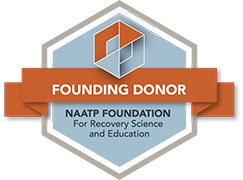How Can You Get An Addict Into Rehab?
Have you ever seen a wounded wild animal? Perhaps you’ve seen something caught in a trap or in a fence, thrashing wildly to get free, but lashing out at anyone who comes near to try and help it?
This analogy is easily relatable to the stories of many whose loved one is trapped in the never-ending cycle of addiction. They are individuals suffering greatly, but unable to help themselves. We know that by offering them the right help, we would be able to free them from their addiction. However, just like the wild animal, when we offer them the much needed help it can cause arguments or a rift in your fragile relationship.
When someone you love is addicted, you might plead, beg or nag them to stop. However, these pleas often fall on deaf ears. This is not because your loved one doesn’t care about you or your family. It is because addiction isn’t logical and those stuck in the addictive cycle aren’t able to fear the consequences enough to ask for help.
How then can we encourage our loved ones to seek help and go into treatment?
Only the addict can decide when the time is right for them to seek help but there are a number of things you can do to motivate your loved one to seek out the help they need.
One: Establish healthy boundaries
Addiction creates chaos, but by implementing healthy boundaries we are able to bring back a level of control and sanity into our lives.
It’s important to understand that the limits you impose are not about the addicted family member. They’re about you. You establish these boundaries to reduce the destruction and stress caused by their substance abuse.
In order to create healthy boundaries, it is critical to be clear about exactly the things you will and won’t do or tolerate. Be direct and specific and do not make idle threats.
Two: Encourage them to take responsibility
Addicts can struggle to take responsibility for any of their own issues and often blame their families. If they are going to change their lives by going to rehab they must accept responsibility for taking that first step.
In order to encourage responsibility, you must walk a fine line by not helping but also not hindering. Don’t excuse the actions and behaviors that occur when they are using but don’t shield them from the consequences.
 Three: Show empathy
Three: Show empathy
You’re exhausted and empathy may be the last thing you think you can demonstrate right now. However, it’s important to remember that when someone feels that they are being forced into something, they are more likely to resist. So, try to make the decision theirs and you will stand a greater chance of getting them to do it.
You can show empathy and motivate your loved one into treatment in a number of ways. Try switching to open ended questions rather than making statements of opinion. Don’t ask probing questions but, instead, try to keep your conversations neutral. Try to walk away from an inflammatory situation rather than arguing. Show concern and sympathy when required and try to avoid criticism as much as you can.
Your main goal is to point your loved one in the right direction and help them accept that they have a problem with drugs or alcohol. You don’t need to justify yourself in order to do this. So, try to avoid doing so.
Four: Ask for help yourself
It may seem like you are totally alone and as you persuade your loved one to get treatment. This is not true. You are not solely responsible for your loved one. If you are willing to talk about it with your family, you will find that someone you or they know has been through a similar situation and will be able to offer advice.
Try talking to other people in recovery. There is nothing like talking to someone who understands it from the suffering individual’s point of view. There are also various support groups for people in similar situations such as Al-Anon. You can seek help from a counselor or therapist to help guide you through this difficult time.
Picking up the phone and speaking to a treatment center, even though your loved one isn’t yet ready, can also be useful. That way, when they do finally reach out for help, you will be ready with all the information.
It is important that you understand that you are not alone in trying to encourage your loved one to seek help from addiction. It’s important that you don’t sacrifice your health or sanity in your desire to motivate your loved one to go to treatment. While it will always need to be the suffering individual’s decision to reach out for help, you are still able to make healthy decisions and motivate your loved one because of these healthy actions.








